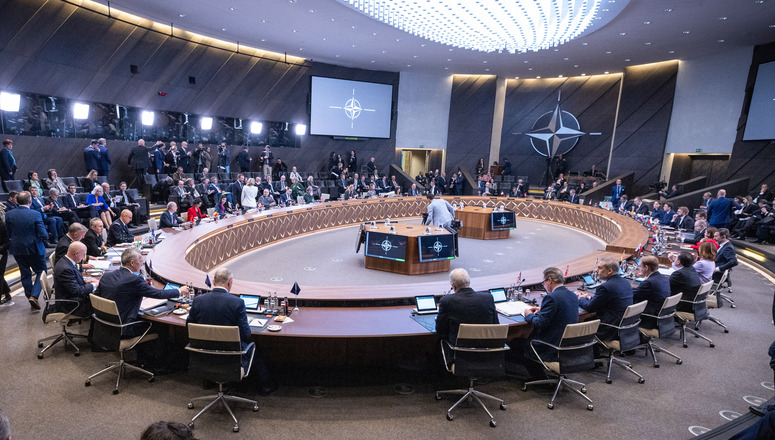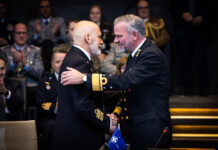
NATO marks its 75th anniversary, now as a 32-strong alliance
Peter Felstead
As NATO foreign ministers concluded two days of talks in Brussels on 4 April 2024, the alliance marked 75 years since the signing of its founding document: the North Atlantic Treaty.
NATO Secretary General Jens Stoltenberg welcomed the landmark, stating, “Since 1949 we have been the strongest and most successful alliance in history.”
While there were a dozen founding NATO members when the alliance came into existence, today there are 32 NATO allies, with Sweden being the most recent nation to join, which it officially did on 7 March 2024.
Speaking at the end of the ministerial meeting, Stoltenberg welcomed the fact that allies continue to step up with new support to Ukraine. “In recent days this includes nearly EUR 600 million from Germany for the Czech-led artillery initiative; as well as 10,000 drones from the United Kingdom; more missiles and armoured vehicles from France; and just yesterday a new package of aid from Finland worth EUR 188 million,” he said, adding, “We need to do even more, and we need to put our support on an even firmer and more enduring basis.”
Admiral Rob Bauer of the Royal Netherlands Navy, Chair of the NATO Military Committee, stated that across Europe and North America 3.5 million men and women in uniform are upholding a shield against aggression. “Together, we are protecting much more than physical safety,” he said. “We are collectively defending freedom and democracy.”
The NATO allies have now agreed to move forward with planning for a greater NATO role in co-ordinating necessary security assistance and training for Ukraine. This will come as some relief to Kyiv, given that security assistance from the United States is still being held up in Congress by a cabal of ‘Make America Great Again’ Republicans.
The NATO foreign ministers discussed the global implications of Russia’s war against Ukraine during their meeting, including support for Moscow from China, North Korea and Iran. The allies were joined in Brussels by Indo-Pacific partners Australia, Japan, New Zealand, and South Korea, as well as representatives from the European Union.
The ministers also discussed how to enhance co-operation in responding to cyber and hybrid threats, as well as new technologies and defence-industrial production. “As authoritarian powers increasingly align, NATO and its partners must stand united to defend a global order governed by law, not by force,” said Stoltenberg.















